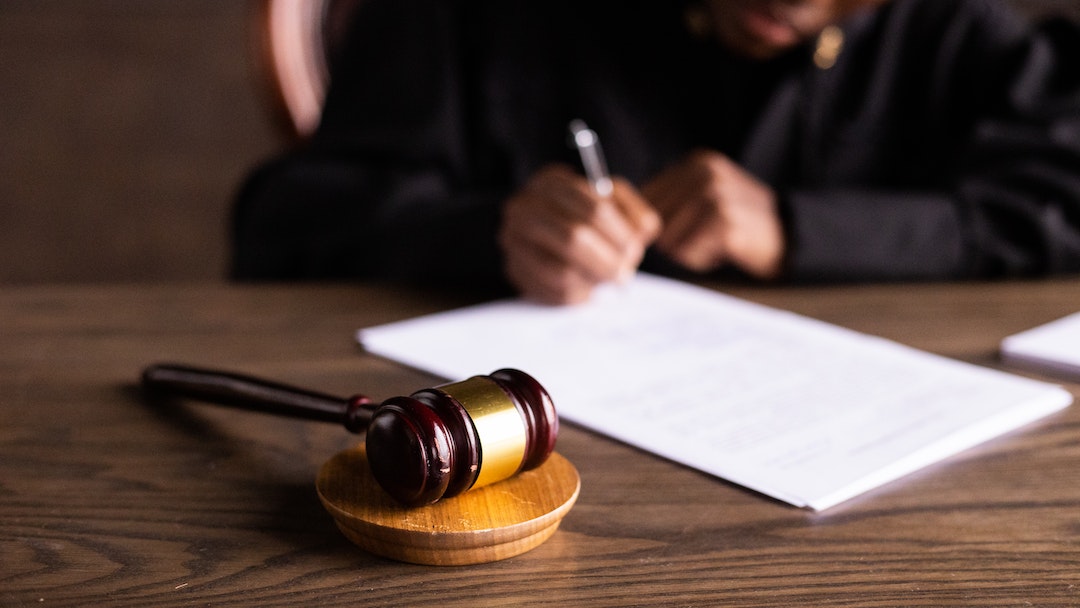Rule 501. Privilege; General Rule.
Privilege is governed by the common law, except as modified by statute or court
rule.
Have your rights been violated?
Have your driving priviledges been revoked?
Has your professional license been suspended?
Have you been charged with a crime?
Call our office to see if we can help
Komorn Law 248-357-2550
Understanding the Protection of Confidential Communications
Rule 501 of the Michigan Rules of Evidence (MRE) plays a crucial role in safeguarding confidential communications and upholding important relationships in legal proceedings. This article delves into the key aspects of Rule 501, drawing insights from the Michigan Rules of Evidence Handbook.
Main Principle: Common Law Governs Privilege Claims
The fundamental principle of Rule 501 states that claims of privilege in Michigan courts are primarily governed by the common law. This means that established legal precedents and principles, as interpreted by United States courts, serve as the primary source for determining whether information qualifies for protection under a privilege.
Exceptions to Common Law Rule
However, the rule recognizes three exceptions where common law may not be the sole authority for privilege:
- United States Constitution: Certain privileges, like the attorney-client privilege, find their foundation in the United States Constitution. These privileges take precedence over common law interpretations.
- Federal Statutes: Specific federal statutes, such as the Federal Rules of Evidence, may supersede common law rules of privilege in certain cases involving federal matters.
- Michigan Supreme Court Rules: The Michigan Supreme Court, through its rulemaking authority, can create or modify privilege rules that deviate from the common law.
Importance of Rule 501 in Practice
Rule 501 plays a critical role in ensuring fair and just legal proceedings by:
- Protecting sensitive communications: Privileges shield confidential information exchanged in certain relationships, like lawyer-client, doctor-patient, and priest-penitent, from disclosure in court. This fosters trust and encourages open communication in these vital relationships.
- Balancing competing interests: The rule balances the need for truth-finding in legal proceedings with the protection of legitimate interests, such as preserving confidentiality and encouraging free and open communication.
- Predictability and consistency: Relying on established common law principles for privilege provides predictability and consistency in legal proceedings across the state.
Further Resources for Understanding Rule 501
The Michigan Rules of Evidence Handbook offers in-depth analysis and commentary on Rule 501, including:
- Detailed explanations of the exceptions to the common law rule.
- Case studies and examples illustrating how courts apply Rule 501 in specific situations.
- References to relevant statutes, court rules, and legal scholarship for further research.
By understanding the principles and implications of Rule 501, legal professionals and individuals alike can navigate the complex world of privilege in Michigan courts with confidence.
Important:
This article provides a simplified overview of the Michigan Rules of Evidence for informational purposes only. It should not be interpreted as legal advice. When facing legal matters, always consult with a qualified attorney for professional guidance.
The Michigan Rules of Evidence are subject to change over time. Always consult the latest official version for accurate information.
Here is the link to the Michigan Rules of Evidence Handbook. Check the footer for the latest update.
Related Articles
Evidence in Michigan Courts: Rules 901-903 Authenticating Evidence
Michigan Rules 901-903 - Evidence Authentication Ever wondered how that document or recording made its way into a Michigan courtroom? The answer lies in Michigan Rules of Evidence 901 to 903, which govern the crucial step of authenticating evidence. This article...
Evidence in Michigan Courts: Rule 801-807 Hearsay Evidence
Michigan Rules of Evidence 801-807 Hearsay: In the courtroom, truth-finding is paramount. Yet, not every statement offered as evidence directly reveals the truth. Enter the realm of hearsay, statements made out of court, and the complex rules governing their...
Evidence in Michigan Courts: Rule 701-707 Opinions
Opinions - Everyone's got one or two or three: A Look at Michigan Rules of Evidence 701-707 Lay Versus Expert Opinions (Rules 701 & 702) Before delving into specific rules, it's crucial to establish the fundamental distinction between lay witnesses and expert...
Evidence in Michigan Courts: Rule 601-615 Witnesses
Navigating the Witness Box: A Look at Michigan Rules of Evidence 601-615 In the courtroom, witness testimony plays a crucial role in unveiling the truth and determining the outcome of a case. However, not everyone can simply walk into the courtroom and take the stand....
More Posts

If I renounce my US citizenship can I get it back?
Venezuela or Bust If I renounce my U.S. citizenship can I get it back?Renouncing U.S. citizenship is a serious legal action. It involves voluntarily giving up your status as a U.S. citizen, usually by signing an oath of renunciation at a U.S. embassy or consulate...

New Laws in Effect for Michigan in 2025
Some laws in effect in 2025 "Enacted by the People of Michigan" Here we go...Minimum wage Improved Workforce Opportunity Wage Act - Michigan's minimum wage will increase twice during 2025, per a 2018 Supreme Court ruling. Starting Jan. 1, 2025, the standard minimum...

The Police Took Your Cellphone – Now What?
Everything you have and say will be evidence used against you. The Police took your cellphone - Now what?After your arrest, you arrive at the police station where you go through the booking process, and your cellphone is taken from you. Once you are released, your...

Feeling Bullied? Here’s Michigan’s Anti Bullying Laws.
Michigan Anti-Bullying Laws & Policies Components of State Anti-Bullying Laws and Regulations How are bullying and cyberbullying defined in Michigan anti-bullying laws and regulations? Michigan anti-bullying laws and regulations include the following...

Former 3M scientist who made unsettling PFAS discovery says bosses deceived her
Gee - What a surprise... When a former 3M scientist discovered the company’s chemicals were in human blood in the general population, she says her bosses misled her to believe it was harmless.3M accused of deceiving its own scientist about PFAS in human blood Hansen...

Drones – What Drones?
Jersey cops launched into the night sky with catapults to throw dreamcatchers at the unknown drones to entangle their props and bring em down! Just kidding - I think.Darrr.. What drones? Those drones pose no threat there are no drones. That's just a balloon,...

Cash For Kids Judge Pardoned (The Kickback Club)
Biden’s commutation for Judge in ‘kids for cash’ scandal should anger the entire universe.Biden’s commutation in ‘kids for cash’ scandal. BY MICHAEL RUBINKAMUpdated 5:32 PM EST, December 13, 2024A judge implicated in one of the most notorious judicial scandals in U.S....

How Much Does It Cost To Hire a Criminal Defense Attorney?
Don't do the crime - if you can't pay the price.Average Flat Fees. Some criminal defense attorneys charge a flat fee for certain types of cases, instead of billing by the hour. This may or may not include filing fees, motions, fees, etc. Flat fees include: DUI/DWI –...

What do you do when you are pulled over for suspected DUI?
If you are pulled over for suspected drunk driving you are probably going to be arrested. The less you say - the better off you are in the long run. If you find yourself being pulled over for suspected DUI, ensure you pull over safely to the roadside, maintain a...

Trump plans – How does Cannabis Business fit in?
You work hard. Now get ready to work harder to prepare to give more.President Biden's administration has proposed the reclassification of marijuana from a Schedule I controlled substance to a Schedule III drug, which recognizes its medical benefits. This significant...














